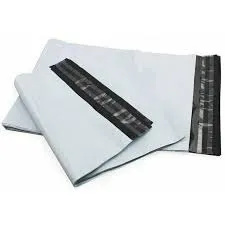Eco-Friendly Parcel Bags for Sustainable Shipping Solutions and Reduced Environmental Impact
The Rise of Biodegradable Parcel Bags A Sustainable Solution for Packaging
In recent years, the surge of global environmental concerns has prompted communities, businesses, and governments to seek sustainable alternatives across various sectors. One significant development in this evolution is the rise of biodegradable parcel bags, which are increasingly recognized as a responsible choice for packaging and delivery services. This article explores the benefits, materials, and overall impact of biodegradable parcel bags on the environment, as well as their role in shaping a greener future.
Understanding Biodegradable Parcel Bags
Biodegradable parcel bags are designed to decompose naturally through the action of living organisms, primarily microorganisms. Unlike traditional plastic bags, which can take centuries to break down, biodegradable bags are engineered to degrade within a shorter timeframe, reducing their long-term environmental footprint. Often made from renewable resources such as plant-based polymers, these bags offer a solution that aligns with the principles of sustainability.
Benefits of Biodegradable Parcel Bags
1. Environmental Impact One of the most compelling reasons to switch to biodegradable parcel bags is their vastly reduced environmental impact. Conventional plastic bags contribute significantly to plastic pollution, with millions of tons ending up in oceans and landfills each year. In contrast, biodegradable bags, when disposed of properly, can decompose into harmless natural substances, minimizing their contribution to landfill problems.
2. Reduction in Carbon Footprint The production of biodegradable bags generally consumes less energy and emits fewer greenhouse gases compared to traditional plastic. As businesses increasingly focus on reducing their carbon footprint, incorporating biodegradable options becomes an effective strategy to demonstrate commitment to sustainability.
3. Corporate Responsibility Adopting biodegradable packaging options can enhance a company's reputation. Consumers are becoming more environmentally conscious and are more likely to support brands that prioritize sustainable practices. By choosing biodegradable parcel bags, companies can position themselves as leaders in corporate responsibility, attracting a growing demographic of eco-conscious consumers.
4. Compliance with Regulations Governments worldwide are implementing stricter regulations on plastic usage. Many countries have banned or taxed single-use plastics, pushing businesses to seek environmentally friendly alternatives. By investing in biodegradable parcel bags, companies can future-proof their operations and ensure compliance with evolving regulations.
biodegradable parcel bags

Materials Used in Biodegradable Parcel Bags
Biodegradable parcel bags can be crafted from various materials, each offering unique advantages
- Corn starch A popular option, corn starch bags decompose fully within a few months when exposed to the right conditions, making them an ideal choice for composting and reducing waste.
- PLA (Polylactic Acid) Derived from renewable resources, PLA is used to create durable and flexible bags that are fully compostable. However, it requires specific industrial composting facilities to decompose effectively.
- PBAT (Polybutylene Adipate Terephthalate) This biodegradable polymer can be blended with other materials to enhance performance while ensuring that the resulting bags maintain their environmentally friendly attributes.
The Shift Towards Adoption
Despite their advantages, the transition to biodegradable parcel bags faces challenges. Cost is a significant factor; biodegradable options can be more expensive than traditional plastic bags, which may deter small businesses from making the switch. Additionally, consumer education plays a crucial role in ensuring proper disposal methods. To maximize their environmental benefits, consumers must understand how to dispose of biodegradable bags correctly—preferably in composting facilities, not regular trash.
Conclusion
The move toward biodegradable parcel bags is a vital component of the broader effort to combat plastic pollution and foster sustainability. As technology advances and consumer awareness grows, the adoption of these environmentally friendly options is likely to increase. Ultimately, the success of biodegradable parcel bags will depend on collective action from manufacturers, businesses, regulators, and consumers alike. Embracing these sustainable alternatives is not just a trend; it is a necessity for preserving the planet for future generations. By prioritizing biodegradable parcel bags, we take a significant step toward a more sustainable and responsible approach to packaging and waste management.
-
Have the freedom of customizing your custom mailers any way you want! Our dedicated packaging support will help deliver you the mailing experience you need to elevate your shipping experience to the next level! Start making a strong impression on your customers and stand out from your competitors! -
LIYA uses high quality raw materials which directly purchased from large enterprises domestic and overseas such as PetroChina, Sinopec, Sabic, Equate, ExxonMobil, Dow Chemical, Total, and Borouge, ensuring the price advantage and quality of the raw materials. -
LIYA uses high quality raw materials which directly purchased from large enterprises domestic and overseas such as PetroChina, Sinopec, Sabic, Equate, ExxonMobil, Dow Chemical, Total, and Borouge, ensuring the price advantage and quality of the raw materials.





